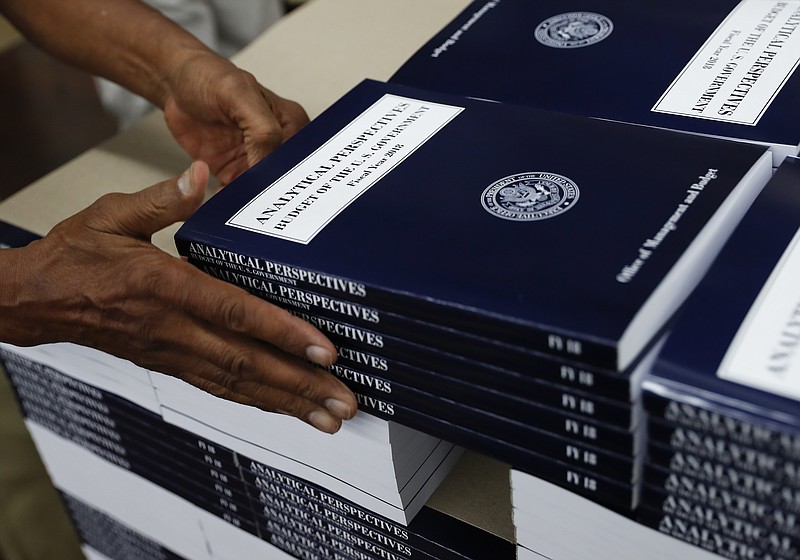If the Trump administration is to be believed, the president's budgeteers created the country's fiscal 2018 blueprint by considering whether taxpayers would want their money spent on each litem line by line.
Considering the taxpayers is a good start, and should be the starting place on every budget decision, but there's a big caveat.
Taxpayers who attended 2016 Trump campaign rallies might have cheered for repealing and replacing Obamacare, for putting able-bodied people on government assistance back to work, for cutting taxes and for increasing military spending.
But the reality of cutting taxes and attempting to move toward a balanced budget means something else has to go. And that something else just might be something precious to the individual Trump supporter. Something like the Corporation for Public Broadcasting, the National Endowment for the Arts or heating assistance for poor families.
Ripping down Obamacare is the right and proper thing to do for such an inefficient, bloated government program, but realize that your close co-worker's brother will lose his health care coverage.
Forcing able-bodied folks on government assistance to work ought to happen, but who'll take care of the children of those who go back to work when Grandma can't or because there aren't enough seats in the local Head Start program?
Increasing military spending is a worthy goal for financially struggling soldiers, disabled veterans and because of the damage done to our armed services over the past eight years, but when spending for one area goes up spending in another area necessarily must come down.
All that said, we should reduce spending in many areas that have continued to grow larger and larger. We know that government programs, once started, rarely end, and too often the discussion is around cuts in the increases for various programs - not actual cuts in spending.
The problem, as we have cited before in this space, is that ever-increasing entitlement programs such as Medicare and Social Security retirement benefits will not be touched. Trump promised that, and the budget is true to his word. But that leaves an ever-declining amount of discretionary money to pay for everything else.
Which brings us to our point.
If Trump believes in this budget, and if it reflects what he heard from people on the campaign trail, he will have to sell it.
If he believes it, he should convince people $3.6 trillion in cuts over 10 years are necessary. He should explain to them why $54 million more in defense spending is vital. He should detail why it is untenable for the country to continue to have $20 trillion in debt.
He should do it in New York City and Sheboygan, Wis., and in Fort Walton Beach, Fla., and Denver, and in Las Cruces, N.M., and Seattle. He should do it before cheering crowds and small knots of local media. He should do it with facts, figures and living examples of success stories achieved without the aid of government's largess.
Mick Mulvaney, the administration's budget director, said it best for Americans who still bother to consider why a country shouldn't spend more than it takes in.
"We cannot continue to simply measure our compassion or our success by the amount of money we spend," he said. "We are going to measure our compassion and success by actually helping people and by respecting taxpayers who pay for it in the first place."
Trump, Mulvaney and company surely know what they're up against. Democrats, united at the far left wing of their party, already have begun the tired mantra that extends back to the Reagan administration: "Children will go hungry, old people will die and families will lose their homes."
The president should reach out to the other party - it's the right thing to do - but he shouldn't look for much, if any, compromise.
The Democrats' accomplices in the national media are only too happy to play along, giving only one side of the story and repeating it until the last potential victim has been located.
So, it won't be easy. Not enough Republicans have the backbone to stand behind the president even though they know spending should be cut. They'll say one thing when campaigning for re-election and another when it comes time to make the hard decisions. Many Republicans who want another term won't go in for all that slicing and dicing.
No, Trump needs to take his case to the people. They're the only ones who bought what he was selling and believed he could win last November.
If he can convince them, their congressional representatives may feel pressured to come along and the country may find budget discipline once again.
